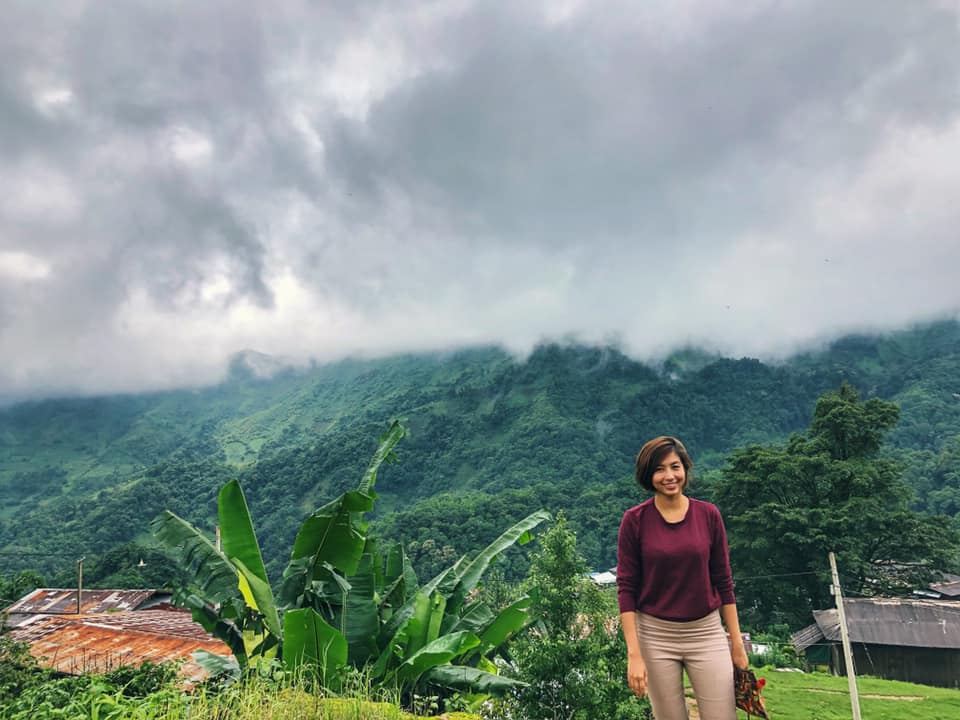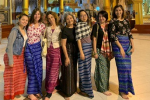As a health and human rights organization that came of age during the HIV epidemic, Asia Catalyst has been working nonstop to leverage the lessons learned fighting AIDS to protect vulnerable groups during COVID-19.
This week, we share an interview with Dr. Khine Su Win, our Senior Program Officer – a medical doctor turned public health advocate. She runs our year-long rights training program with marginalized groups including women living with HIV, transgender students, women organizing against domestic violence, people who use drugs, and ethnic minority farmers. These are her takeaways from the pandemic so far.
Q: What’s happening in Myanmar right now, from a medical and social perspective?
A: Myanmar confirmed its first COVID-19 case three weeks ago. As of April 12, we had 37 active cases and 4 deaths. The government instituted 14-21 days of quarantine for people arriving from other countries but we’re starting to see more cases in people who contracted it here. Like most countries, we’re working on contract tracing, testing and stay-at-home quarantine measures. But there is a shortage of facial masks and the price of masks is 5-10 times what it’d normally be. Health providers need better personal protective equipment, which the government is trying to rapidly produce. We don’t have enough testing or lab capacity, so only people with symptoms or close contact history with someone who’s tested positive can get tested. This means we’re skipping over asymptomatic carriers – a serious problem. I am also worried about flare-ups in the large migrant community and people living heavily populated, underdeveloped areas who are vulnerable to the virus and its economic devastation.
As part of our prevention and control measures, the government shut down the water festival, imposed travel restrictions in Yangon and Mandalay during Myanmar New Year, which we’d be celebrating right now, and shut down public gatherings and sporting events. Thousands of people have lost their jobs because garment factories are closed. We’ve gotten some foreign aid to slow COVID-19 and provide relief for people who lose jobs, along with mothers, elderly people, and migrants. Our government is also providing food to poor people while people are restricted from movement.
Q: What are you hearing from the community groups Asia Catalyst partners with?
A: Some are volunteering, conducting prevention activities in their communities to raise COVID-19 awareness, distribute food and masks, transport people suspected of being infected, and helping out at quarantine centers. It’s a reminder that the groups we work with are always on the frontlines; they are the healthcare lifeline, for many in the community. They’re making sure people living with HIV are still receiving counseling, their medications, and HIV prevention support. And of course they’ve had to postpone their physical meetings, workshops, and trainings until the epidemic is under control.

Q: How will this affect people living with HIV, sex workers, drug users, women dealing with intimate partner violence in Yangon, where you live?
A: Just meeting basic needs is a serious concern for people who were already living hand-to-mouth. Women and children in poverty are struggling to afford food and medicine. Female and transgender sex workers are worried about supporting their families. Some sex workers are taking risks to continue selling sex because they cannot survive without money coming in. This is an issue we will see more and more, people going back to work because they can’t afford not to, as the pandemic stretches on.
Migrant women living with HIV who are coming back to Myanmar do not have income and are in dire need of economic support. HIV antiretroviral therapy (ART) centers are crowded with limited protections from COVID-19. Most of the ART centers are located in the cities and people with HIV living outside of cities have difficulty getting there when most public transportation is closed.
Q: Asia Catalyst got its start working on the AIDS epidemic. What are the lessons we can bring over from the HIV epidemic?
Since the first HIV case was reported in 1981, we have been fighting this global pandemic. It is still one of the leading causes of death in Southeast Asia and Sub-Saharan Africa, especially with key populations – sex workers, people who inject drugs, and men who have sex with men. The way to stop HIV/AIDS is by combating stigma, discrimination and punitive laws and policies that keep these groups from leading healthy, full lives.
With COVID-19, we again see the participation of vulnerable communities is crucial for diagnosis, contact tracing, quarantine, and reporting to work. We are only as healthy as the “weakest link” in our system of care. In Myanmar, there’s been discrimination against people with COVID-19, their family members, healthcare workers, migrant communities, and vendors or day laborers who can’t afford to stay home. The idea of pegging some people as “virus carriers” or “virus spreaders” is not helpful. It undermines a truly effective response and puts the whole population at risk. We need evidence-based social interventions for high risk groups, in addition to social distancing, and testing should be scaled up for everyone. We also need to make sure health measures take a rights-based approach. People are entitled to accurate up-to-date information, affordable health services, medicines or vaccines and to be protected from violence. COVID-19 cannot be an excuse to disregard people’s rights.
COVID-19 is highly contagious and everyone is at risk of being infected regardless of social class, race, ethnicity, income. For countries with poor healthcare systems – and not enough access to testing, personal protective equipment, or vaccines – social distancing is effective. But we have to consider socioeconomic factors and the impact on people without wages if we want to create a response that will work over the long haul. A one-size-fits-all solution won’t work. It’s never been more crucial to invest in public health.
Q: How are you staying safe, sane, and healthy through the pandemic?
A: I stay at home most of the time, wash my hands frequently, eat healthy, sleep regularly and do physical activities like swimming, yoga, a dancing game. I’ve been improving my cooking skills by trying new recipes. I communicate regularly with family and friends.
To not feel overwhelmed, I only follow news from reliable media sources like the Ministry of Health, Myanmar Time, or DVB. Meditation helps me stay calm. And I focus on the positive things coming out of this crisis. Mother nature is having its time to heal, this is a moment for self-reflection, and I appreciate even more the places I have been and things I have done for the community. Also I watch lots of funny cat and dog videos on the Internet.
Stay healthy + inspired!





